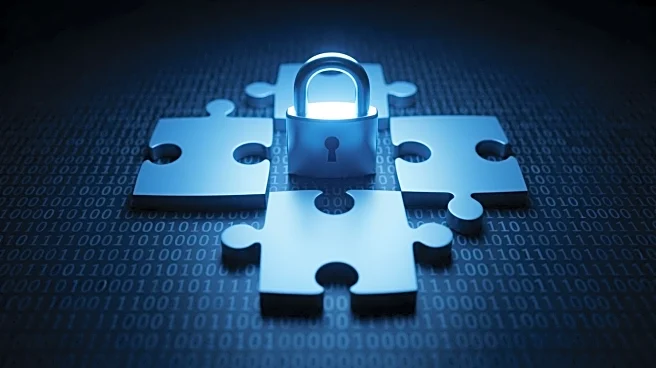What's Happening?
Palo Alto Networks' Unit 42 has uncovered a large-scale phishing operation known as Smishing Triad, which uses text messages to deceive victims. The operation, managed in Chinese, involves thousands of malicious actors and has registered approximately
195,000 domains since January 2024. The phishing campaign targets sensitive information such as identification numbers and financial details, impersonating services across various sectors including toll roads, financial firms, and healthcare organizations. The operation is highly decentralized, with most attack domains hosted on U.S.-based IP addresses. The U.S. Postal Service is the most impersonated service, with over 28,000 domains linked to the operation.
Why It's Important?
The Smishing Triad operation represents a significant threat to cybersecurity, particularly in the U.S., where many of the attack domains are hosted. The impersonation of critical services poses risks to individuals and organizations, potentially leading to data breaches and financial losses. The operation's scale and complexity highlight the challenges in combating phishing attacks and the need for robust cybersecurity measures. The involvement of Chinese language channels suggests international dimensions to the threat, complicating efforts to track and dismantle the operation.
What's Next?
As the operation continues to evolve, cybersecurity experts and law enforcement agencies may increase efforts to identify and shut down malicious domains. The ongoing threat may prompt organizations to enhance security protocols and educate users on recognizing phishing attempts. International cooperation may be necessary to address the cross-border nature of the operation and mitigate its impact.
Beyond the Headlines
The operation's reliance on decentralized infrastructure and sophisticated phishing kits reflects broader trends in cybercrime, where attackers leverage technology to scale operations. The ethical implications of data harvesting for criminal purposes raise concerns about privacy and the protection of personal information. The case may influence policy discussions on cybersecurity and the regulation of domain registration practices.

















